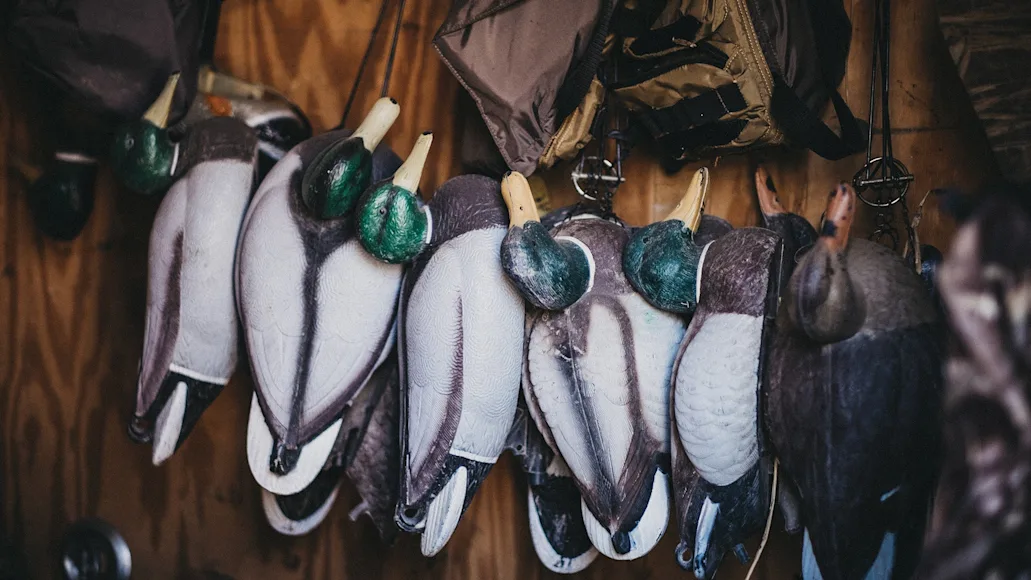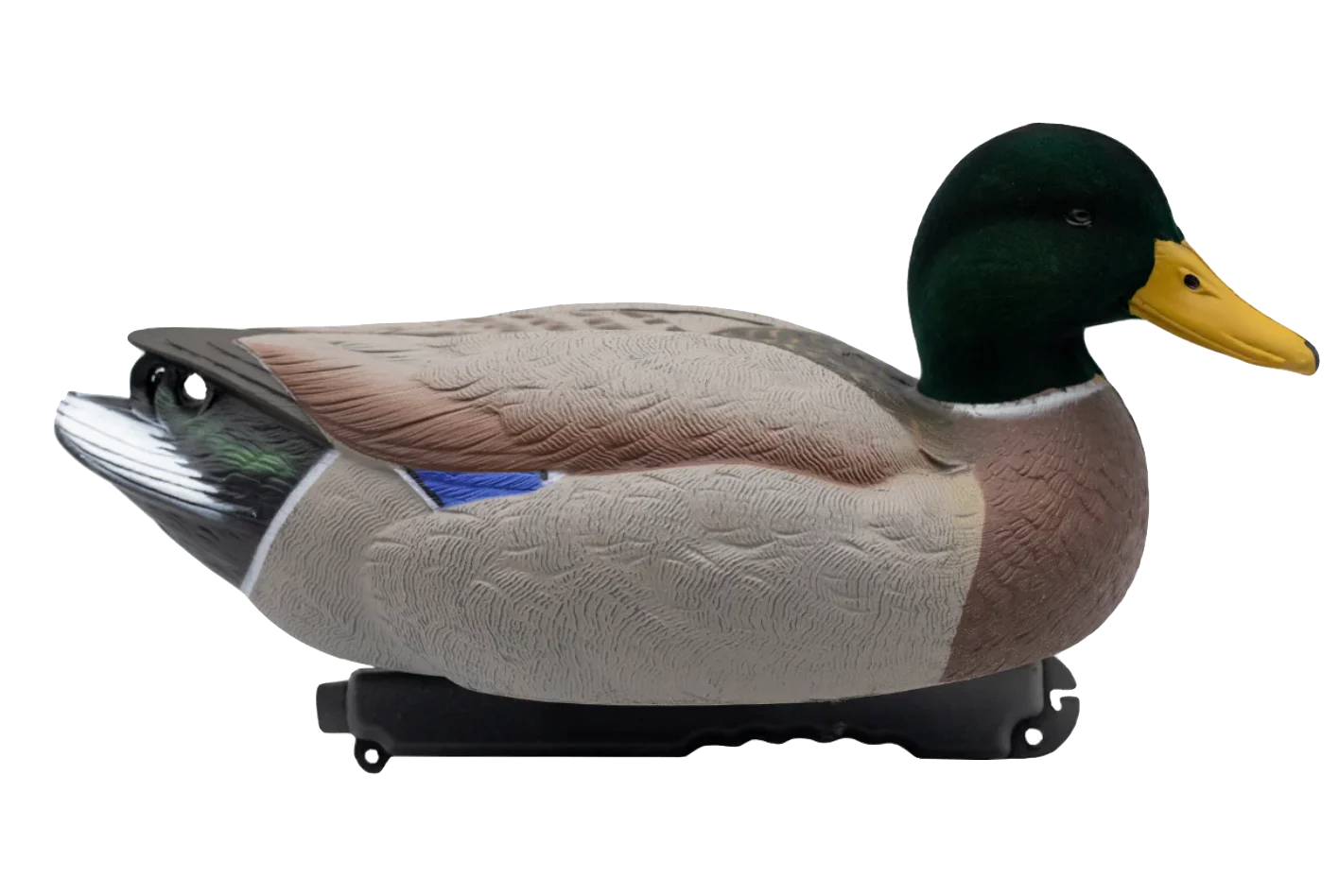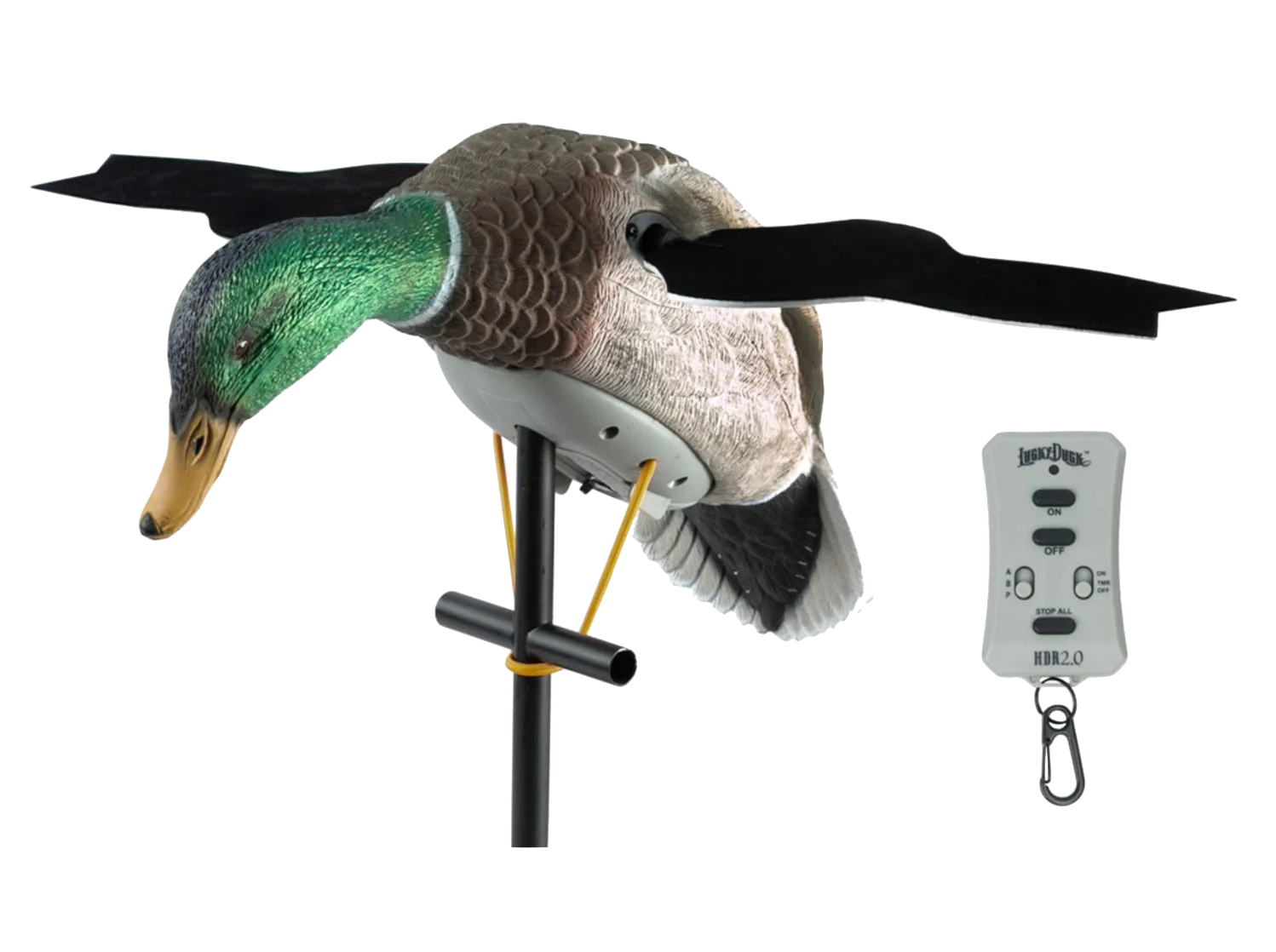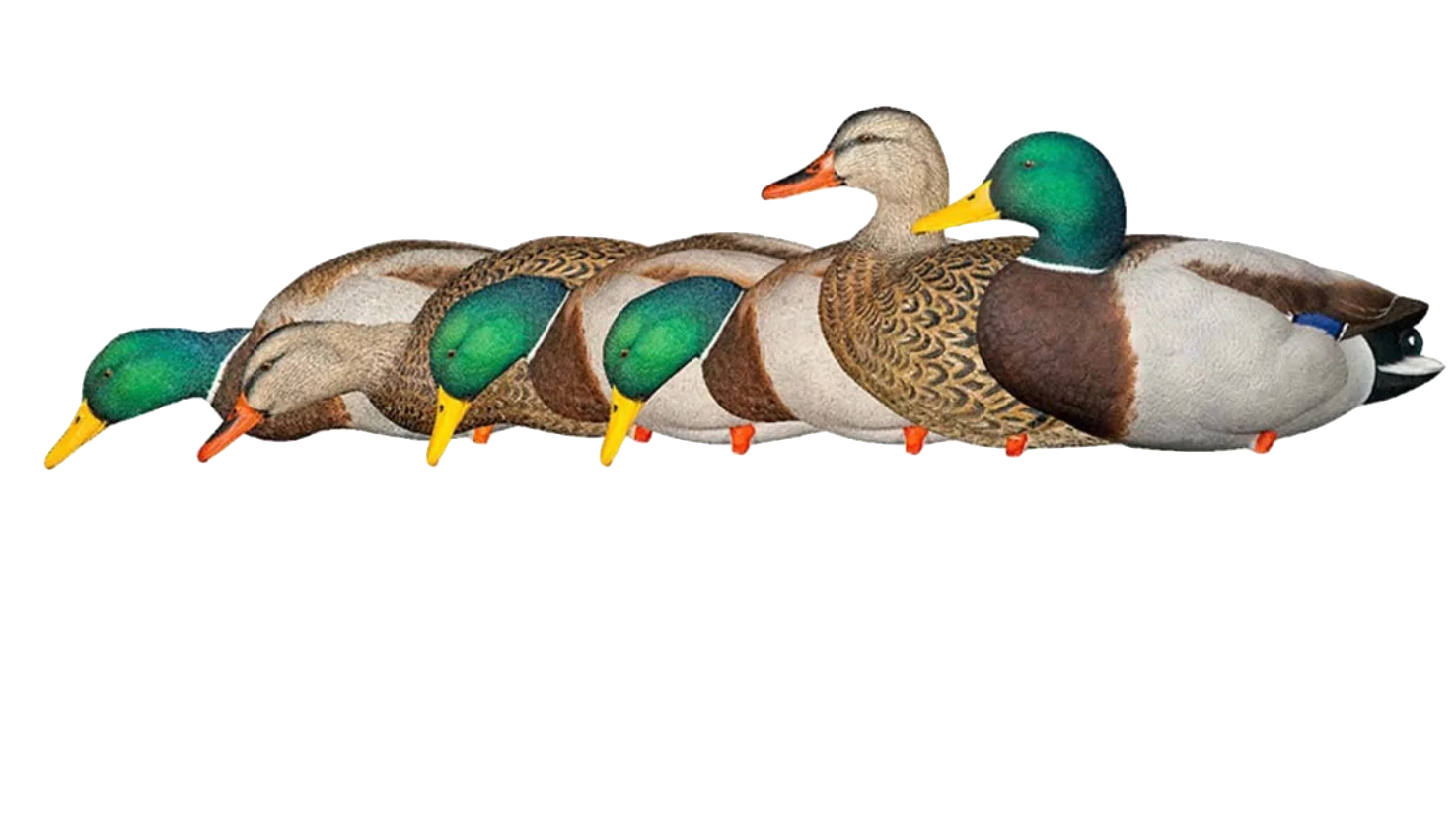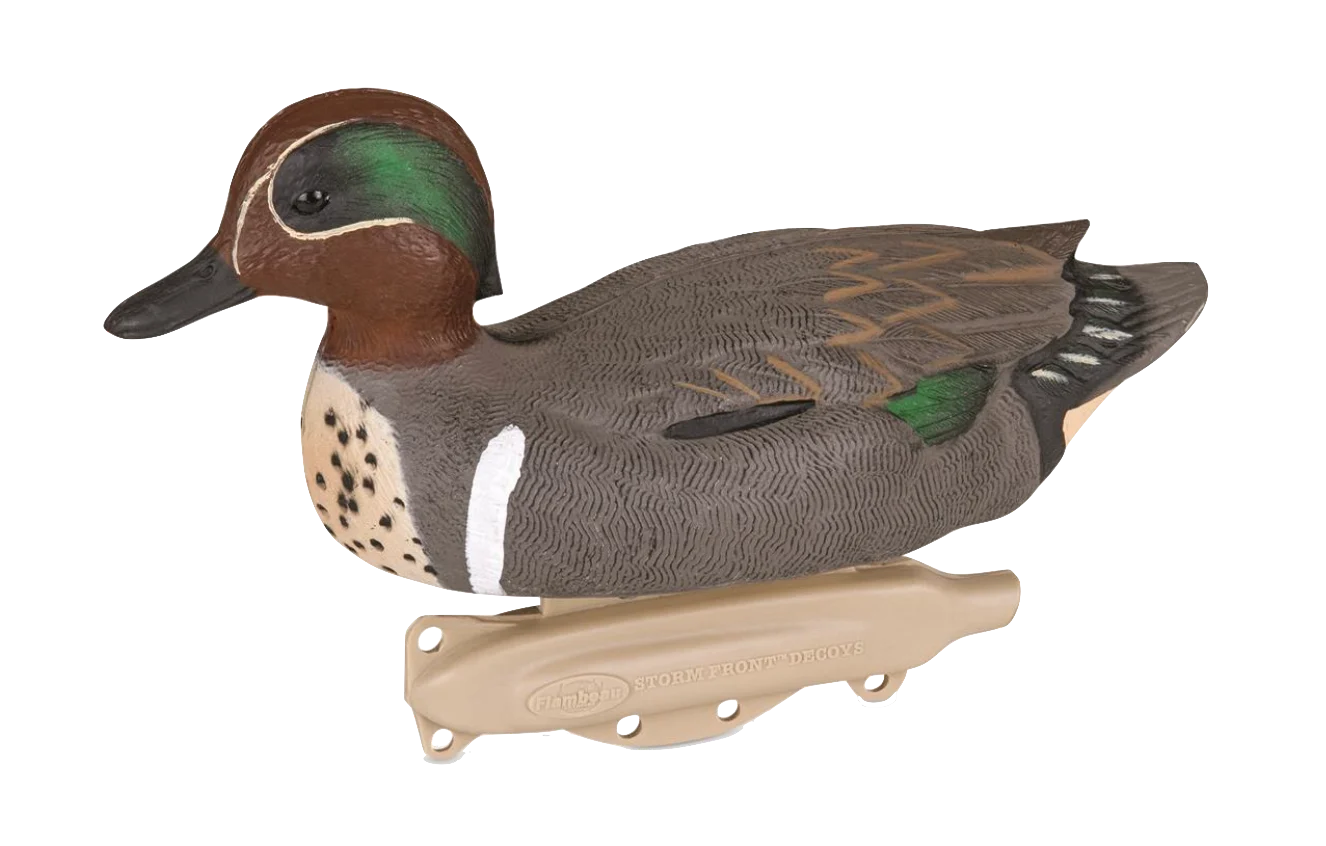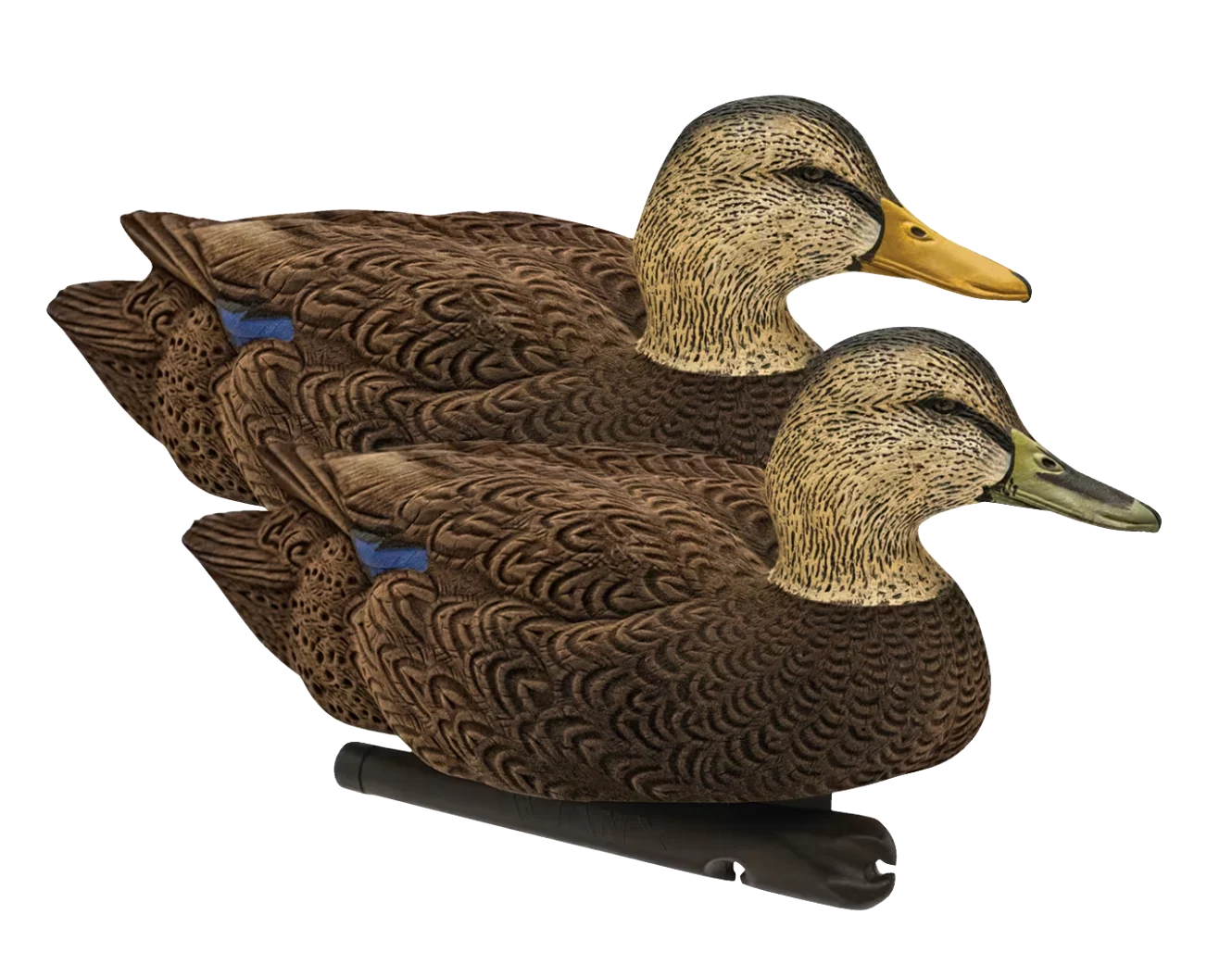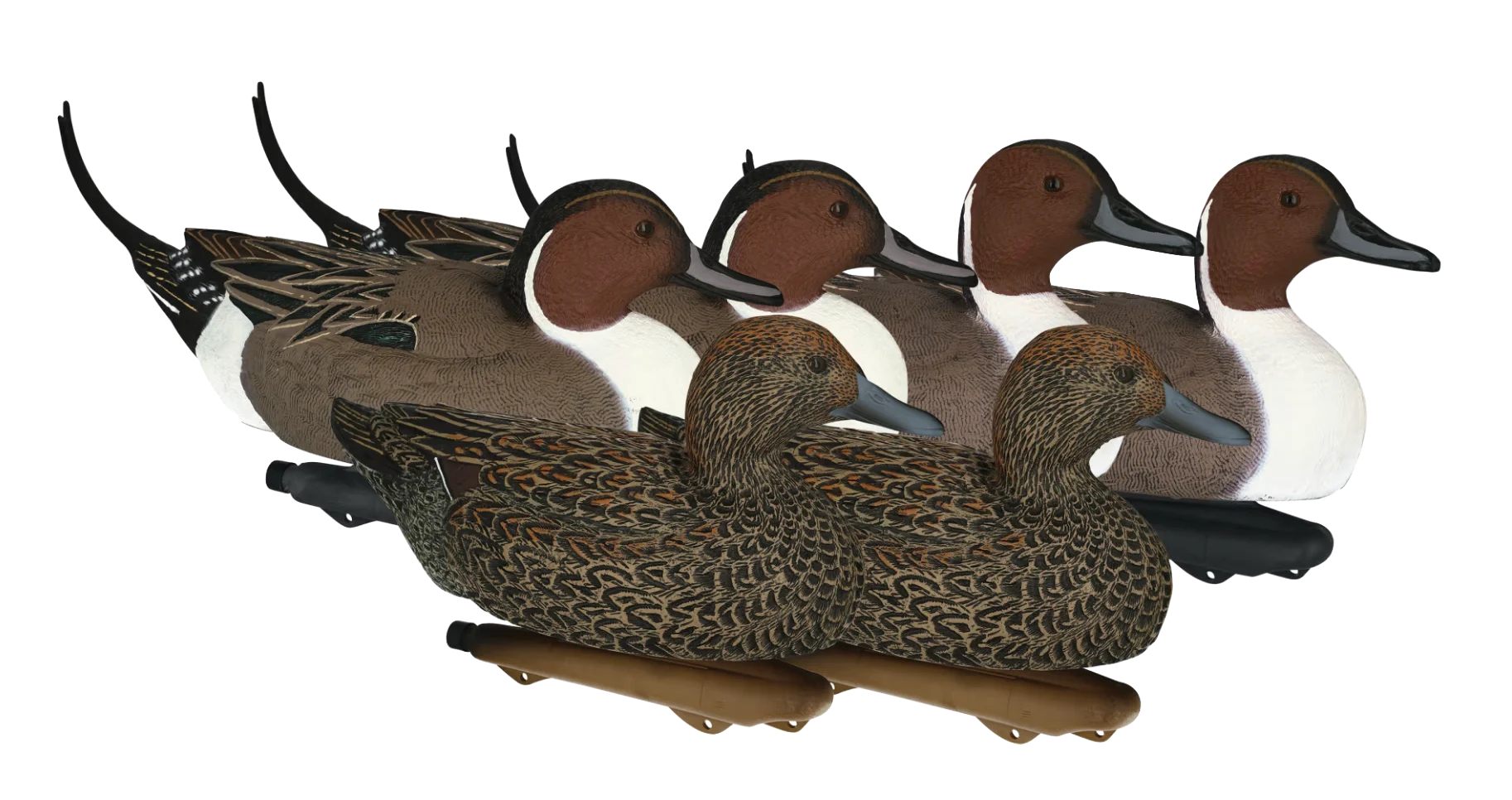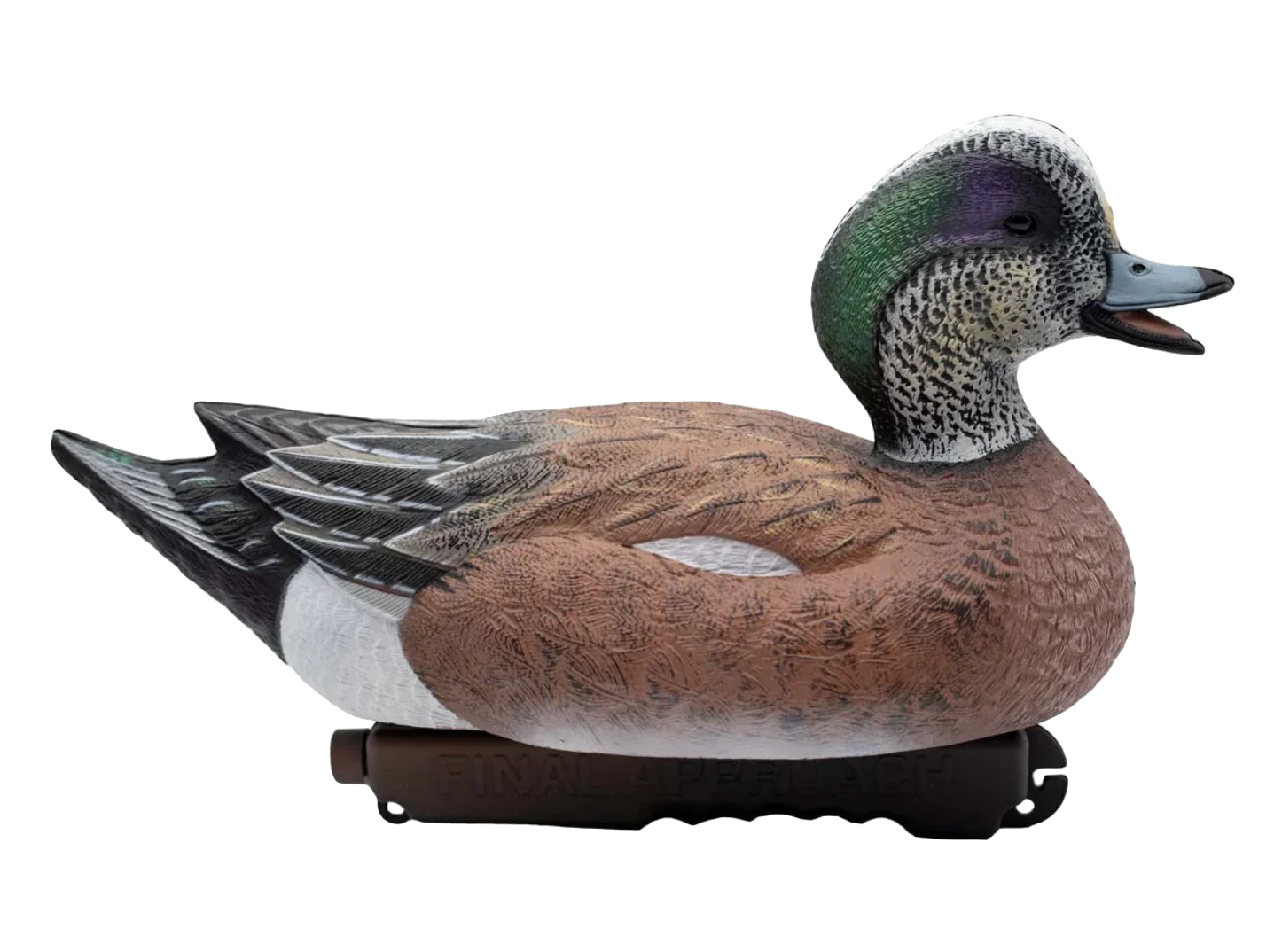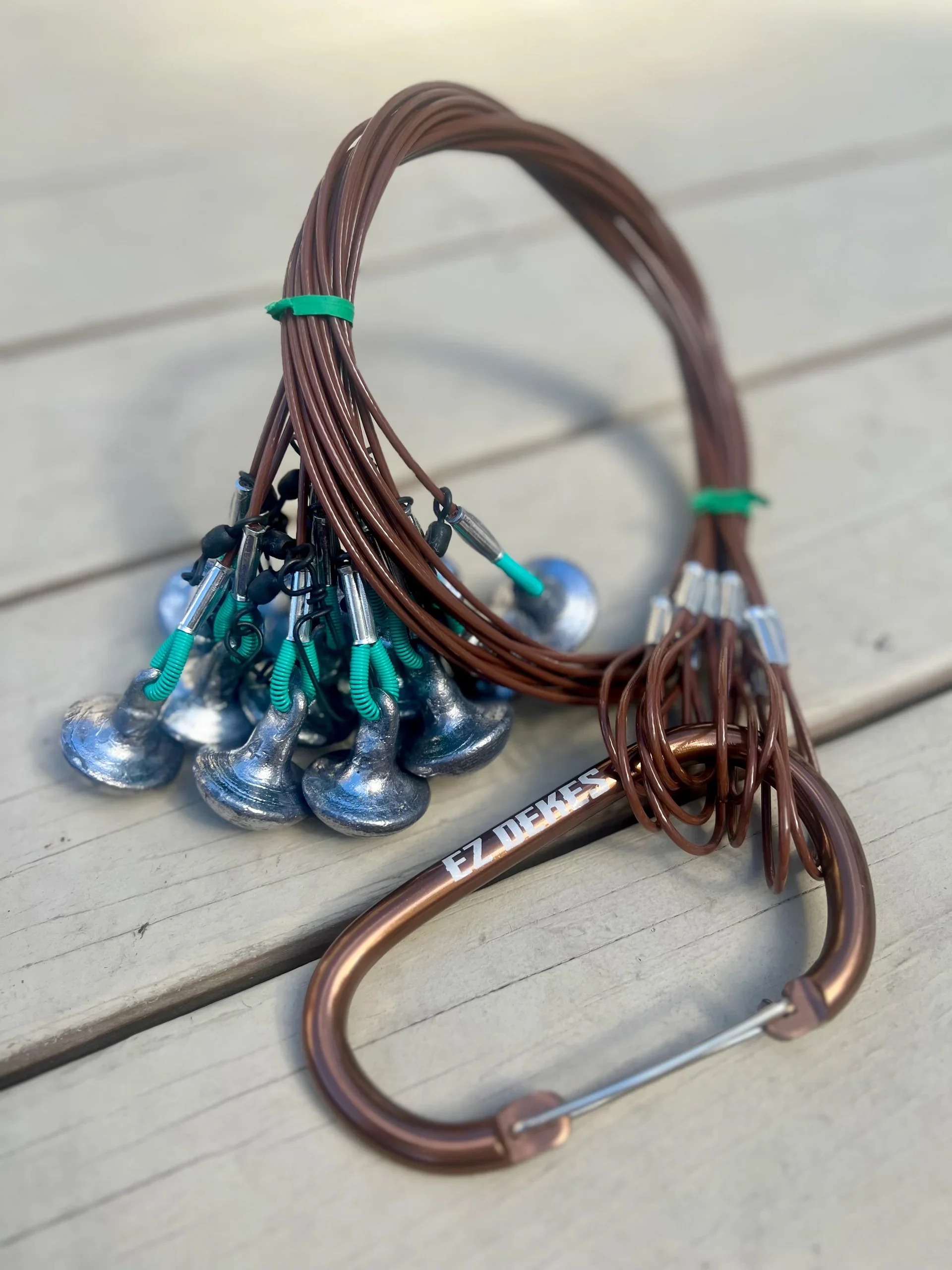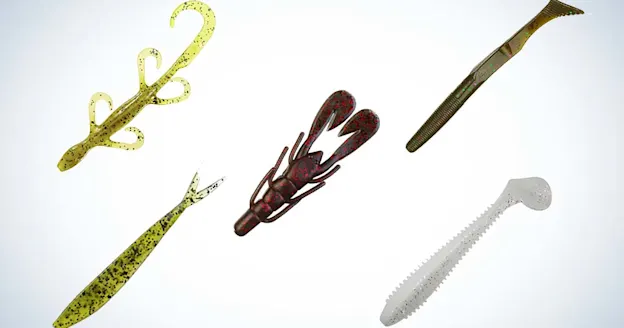We may earn revenue from the products available on this page and participate in affiliate programs. Learn more
Half of my garage is solely dedicated to duck decoys. I have dozens upon dozens of mallards, black ducks, pintails, wood ducks, wigeon, and gadwall floaters. Then there are the full bodies, silhouettes, and motion decoys. Not to mention my family’s collection of vintage cork decoys. It’s safe to say I have a decoy addiction.
The benefit of hoarding decoys is that I’ve hunted over a wide range of brands, styles, and materials. Over the years, I’ve come to like particular models for specific hunting situations and locations. But let me be clear: You don’t need dozens of decoys to kill a lot of ducks. As much as I hate to admit it, a simple spread of 12 mallard decoys will do the job most of the time.
So that leaves the million-dollar question: What are the best duck decoys? Hunters must consider style, species, time of year, size, paint schemes, and location when building out their spread. If you start to hunt different habitats, species, and locations, your decoy choice will vary. But that’s the fun part—you can slowly add to your decoy spread over time and fine-tune it to your hunting style. Then, on those slow days in the blind, you can look out at your spread and debate the best duck decoys with your hunting buddies.
Best Mallards: Final Approach Live Floating Mallards with Flocked Heads
Best Teal: Flambeau Green/Blue Winged Teal Decoys
Best Spinning Wing: Lucky Duck XHDI Spinner
Best Full Bodies: Avian-X AXP Full Body Mallards
Best Black Duck: Avian-X Topflight Fully Flocked Black Ducks
Best Pintail: Cabela’s Northern Flight Pintails
Best Wigeon: Final Approach Live Floating Wigeon
Best Texas Rig: EZ Dekes Texas Rigs
Best Mallards: Final Approach Live Floating Mallards with Flocked Heads
Specs
Species: Mallard
Style: Floater
Number of Decoys: 12 (7 drakes/5 hens)
Material: EVA
Pros
Drakes have flocked heads
Realistic paint scheme
Comes with a 12-slot decoy bag
Slightly oversized design
Cons
Expensive
The Final Approach Live Floating mallards were the foundation for all my decoy spreads this duck hunting season. They’re durable, feature an ultra-realistic paint scheme, and are slightly oversized for greater visibility. The 12 pack comes with seven drakes, all of which have flocked heads, and five hens. This also includes eight different body postures.
I ran a dozen of these dekes in my home state of Colorado from late October to late January. The shape of these decoys, combined with the paint scheme, make them some of the most realistic on the market. The detail in the feathers, paint, and flocked heads are incredible. Unlike many modern plastic decoys, the FA live floating mallards ride low to the water, just like real birds do.
Due to the fully plumed color scheme, I didn’t break out these decoys until mid-season where I then used them all the way to the end of January. These decoys thrived in the worst conditions imaginable. I hunted in rain, snow, and ice, not to mention tough hikes and boat rides to the blind. After a full hunting season, they look as good as new, with only a few dirt marks on the flocked heads.

Best Teal: Flambeau Green/Bluewing Teal Decoys
Specs
Species: Greenwing Teal, Bluewing Teal
Style: Floaters
Number of Decoys: 6 (4 drakes/2 hens)
Material: Proprietary polymer blend
Pros
Lightweight
Affordable
Great paint scheme
Cons
Materials don't feel as durable as other decoys
I always have at least a half dozen greenwings in my spread throughout the season here in Colorado. In teal season that number is anywhere from three to four dozen. My go-to teal dekes—greenwing and bluewing—are Flambeau's Storm Front series. I have about five dozen of these little decoys, and I absolutely love them. The paint scheme is realistic, they're easy to carry, and they look great on the water.
Hunters can pick up a half dozen Storm Front greenwings or bluewings for $50, but they're often on sale at other retailers. I recommend these for anyone looking to add more decoys to their spread, whether it's teal season, mid-season puddle duck shoots, or for increased visibility in those snowy hunts. Start with a dozen of these little Flambeaus and go from there
Best Spinning Wing: Lucky Duck XHDI Spinner
Specs
Species: Mallard
Style: Spinner
Number of Decoys: 1
Material: EVA body
Pros
Fully waterproof spinner
Flocked black wings
Wings always turn off white side down
Realistic EVA body/paint scheme
Long battery life
Comes with remote
Cons
Expensive
Lucky Duck released the new XHDI spinner in the summer of 2023, and it took home our Best New Decoy award last fall. After a full season of hunting with one, I can say this is the best spinning wing decoy I’ve ever hunted with. What makes it so good? For starters, it features magnetic wings that make sure they always turn off white side down. That might not seem like a big deal for the average duck hunter, but for obsessed waterfowlers, we know how easily white spinner wings can flare geese. This allows you to run spinners for ducks and shut them off for incoming honkers without issue.
As for the rest of the decoy, this spinner features a realistic paint scheme and a durable EVA body. It is fully waterproof and runs on a 7.4-volt lithium-ion battery. Speaking of that battery, I was able to go multiple hunts without recharging my XHDI. Lucky Duck claims it has a run life of 16-20 hours—all I can tell you is I used it four hunts in a row without recharging it. The wings are also flocked to reduce glare and add realism. The kit comes with a 7-foot stake and remote kit.
Best Full Bodies: Avian-X AXP Full Body Mallards
Specs
Species: Mallard
Style: Full Body
Number of Decoys: 6 (4 drakes/2 hens)
Material: Rubberized molding material and non-chip paint
Pros
Very durable
Realistic paint scheme
Five different postures
Decoy bag included
Moves well in the wind
Cons
Full body decoys are expensive ($170 per six)
A large portion of hunters chase ducks in dry fields. This calls for different kinds of gear, including bibs, layout blinds, and full body decoys. And the best full body decoys you can buy are Avian-X’s AXP Mallards. They’re the dry field version of the brand's fusion floater pack, featuring the same realism, durability, and paint scheme, but in a standing position.
Avian-X sells a six-pack of these full bodies for $210, but you can pick up the same ones on Amazon for $172. As I mentioned earlier, these dekes are durable and look fantastic. They come with a six-slot decoy bag and 17-inch orange stakes. I recommend accumulating some every few years and mixing in other species, like full body black ducks and wigeon, to give your spread more contrast and diversity.
Best Black Duck: Avian-X Topflight Fully Flocked Black Ducks
Species: Black Duck
Style: Floater
Number of Decoys: 6 (3 drakes/3 hens)
Material: N/A
Pros
Extremely realistic
Flocked body
Very durable
Weight-forward keel for better movement
Very dark from a distance
Cons
Expensive for six decoys
Flocking can be hard to clean
During the beginning years of my duck hunting career, I targeted black ducks almost exclusively. I hunted in the salt marshes of Long Island, where the black duck is king. Besides an excellent hide, realistic decoys are crucial for success. And these Avian-X flocked black ducks are the most realistic-looking black duck dekes out there. Nothing else even comes close.
My salt marsh black duck rig usually consists of anywhere between six and 12 Avian-X flocked black ducks and two mallard decoys. If you’ve spent any time hunting or observing black ducks, then you know just how dark these birds look on the water. They are jet black, and the further away you are, the darker they appear. These decoys imitate that look to a tee and should be a regular in any Atlantic flyway duck hunter’s spread. A half dozen will run you a little over $100, but you can often find them on sale for less. Just make sure to rinse them down after every few hunts in salt water.
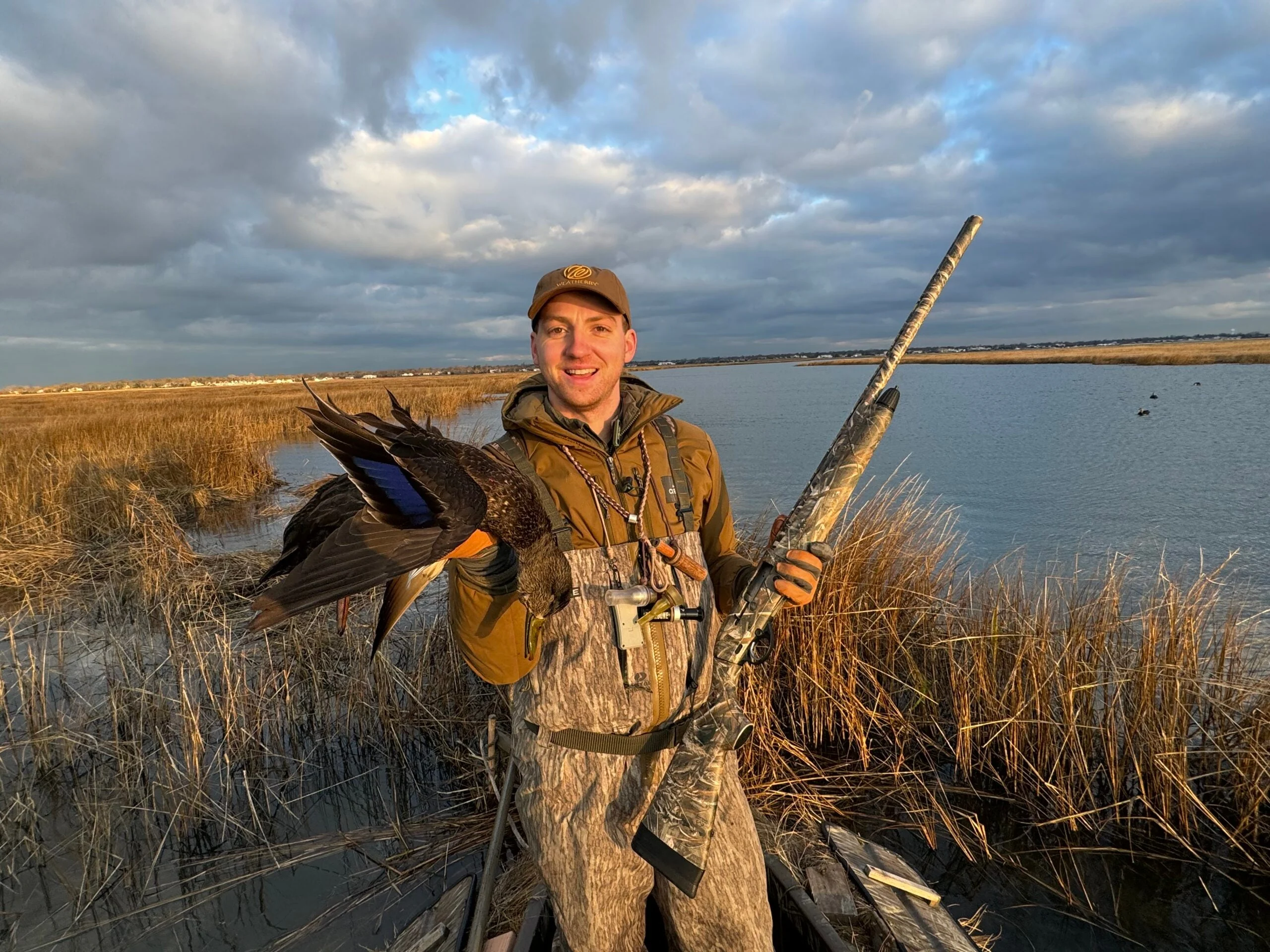
Best Pintail: Cabela’s Northern Flight Pintails
Species: Pintail
Style: Floater
Number of Decoys: 6 (4 drakes/2 hens)
Material: EVA blend
Pros
Affordable
Realistic
Easy rigging
Cons
Minor paint chipping after two seasons
A little small
If I am being completely honest, I didn’t have high hopes for these Cabela’s pintail decoys. I bought them in a pinch while on a hunt last year because I left my “better” pintail dekes at home. Fast forward two years later, and these Northern Flight decoys are now my go-to pinnies for any floater spread.
The low price tag made me skeptical, but these decoys have proved their worth time and again. They’re made from an EVA blend construction and feature a great paint scheme. The split in the drake’s tail is one of the small details that I love. I’ve had minimal issues with dragging these birds over rocky banks and throwing them in the back of my truck. The only wear I’ve noticed is small paint chips here and there. But the overall integrity of the decoy has held up, and at $60 for a half dozen, you can’t ask for much better.
Best Wigeon: Final Approach Live Floating Wigeon
Specs
Species: Wigeon
Style: Floaters
Number of Decoys: 6 (4 drakes/2 hens)
Material: EVA plastic
Pros
Excellent paint scheme/detail
Durable
Adds color/pop to decoy spread
Three head positions
Cons
Expensive
After mallards, wigeon are what I shoot the most in my home state of Colorado. I often see big groups of cottontops mixed in with flocks of greenheads. To make my spread as realistic as possible, I throw out a half-dozen Final Approach live floating wigeon mixed in with my mallard dekes—and it works perfectly. Adding variety to your spread is important in all four flyways, and since wigeon are found across the entire country, a couple of cottontop decoys will benefit most hunters.
These floaters are durable, realistic, and add a little extra pop to the spread. I love the whistler head position, and the paint scheme has just the right amount of colors that increase visibility without looking unnatural. Depending on the situation, I either run all six of these FA wigeon dekes or as little as just two for small water hunts. A half-dozen will run you a C-note, but they are worth every penny.
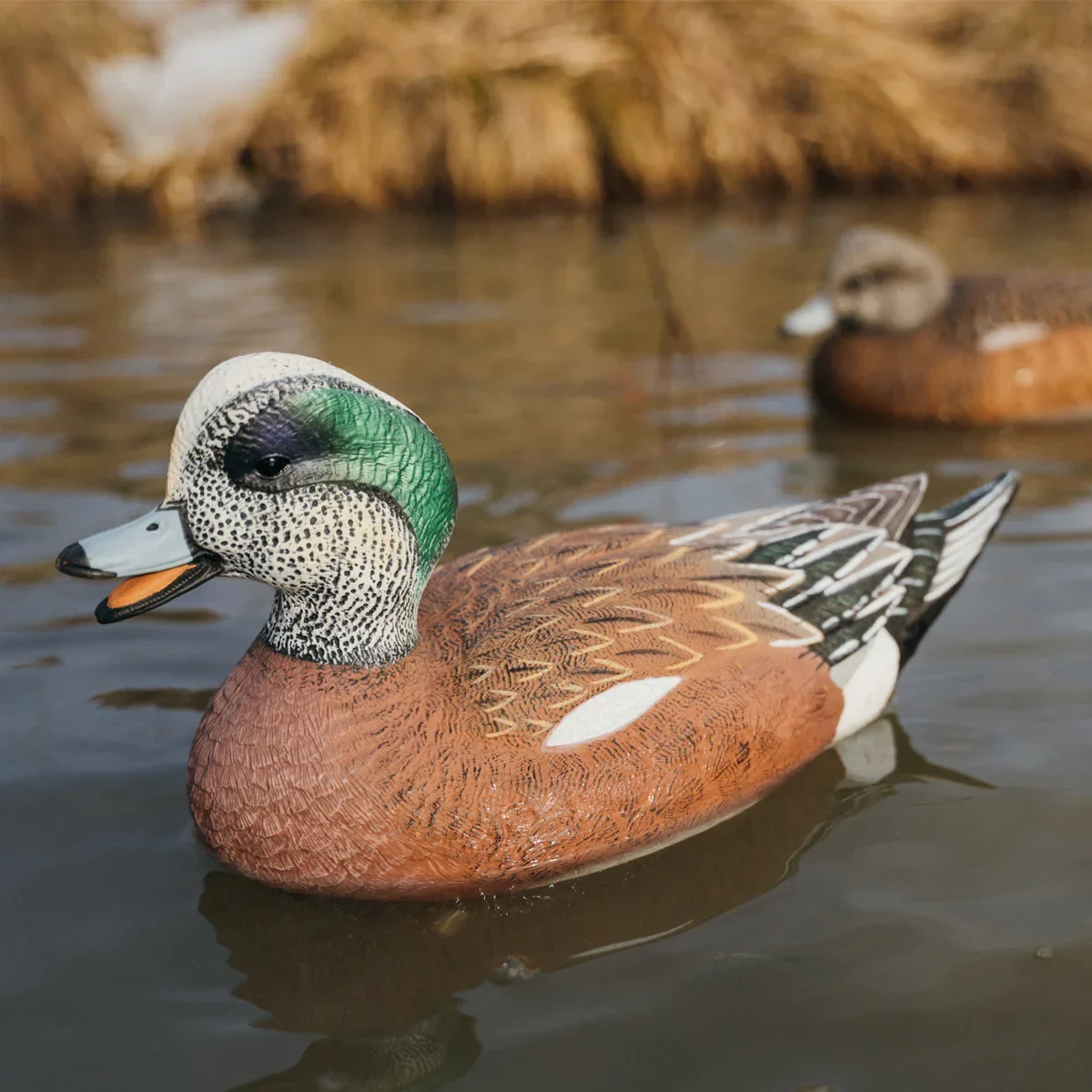
Best Texas Rig: EZ Dekes Texas Rigs
Specs
Length: 24", 36", 48", 60", 72", 96"
Materials: Stainless Steel PVC Coated Cables
Weight: 4oz, 6oz, 8oz, 12oz
Quantity: 12
Pros
Durable
No memory
Multiple weight and length options
Handmade in the USA
Cons
None
EZ Dekes is a small company based out of Long Island, New York. The harsh saltwater conditions of Long Island's bays and marshes led EZ Dekes founder Ryan Preuss to create decoy rigging systems that can handle the brutal, corrosive environment. I started using EZ Dekes Texas rigs this season, and I've been extremely impressed. Besides being built with the best materials, the PVC-coated cables are the most flexible and maneuverable lines that I've ever used. They are easy to tie into loops for carrying purposes and don't retain memory, unlike almost every other Texas rig cable on the market.
I have two dozen 36-inch cables rigged with 4-ounce mushroom weights. These rigs also come in lengths up to 96 inches and weights up to 12 ounces. I suggest getting the PVC-coated cables over mono for durability purposes. Hunters can also purchase timber rigs, long lines, and custom decoy bags. Plus, everything is handmade right here in the USA.
How We Picked and Tested Duck Decoys
The only way to test duck decoys is through excessive use in the field. Great decoys can withstand constant abuse from the elements season after season. That means being durable enough to be repeatedly thrown into the bed of a truck, dragged across the ground, frozen in ice, covered in mud, and submerged in water.
Over the past five hunting seasons, I’ve spent well over 100 days in the marsh. During that time, I’ve added to and changed my decoy spread more than I can count. I’m not easy on gear, either. My decoys get thrown into canoes, dragged across rocky riverbanks, banged up against ice shelves, and used in the highly corrosive saltwater.
I hunt in all types of habitats, from small freshwater streams to big reservoirs to icy rivers to saltwater marshes. My decoy selection varies from location to location, depending on what species I target and what hunting situation I’m in. My testing grounds ranged from rivers in northern Maine to tidal marshes in New York to flooded timber in Arkansas to the shores of the Pacific Northwest. I’ve hunted over spreads as little as four decoys and have set rigs with as many as 300. Every decoy on this list has helped me put ducks on my strap—and each is durable enough to last season after season.
FAQs
Q: How much should a dozen duck decoys cost? The price of a brand new box of a dozen decoys can range from as low as $40 up to $200 plus. Things to consider that impact the price are materials, size, realism, flocking, species, and weight. You can get a dozen quality decoys for around $100, but undersized decoys often sell for less.
Q: Are six duck decoys enough to be successful? Depending on where and what species you're hunting, six decoys can be enough for a successful day. Any small water areas like creeks, ponds, or swamps are great locations to run a small spread. However, there are situations where more decoys can benefit you. In general, it is best to match what you see on the water. Usually, a dozen decoys is plenty to get the job done.
Q: What should I look for in a good duck decoy? Most important, it should look like a duck. Does the coloring on the decoy match the appearance of a real bird? Is the decoy the correct size? Are the materials durable enough to last multiple seasons? Those are the three most important considerations when buying a decoy. After that, look for things like weight, rigging system, keel design, and so on.
Final Thoughts
There are a lot of companies producing duck decoys nowadays. Most of them are good. Others are okay. Some are exceptional. Most of these decoys on any given day will fool a mallard or two, but there’s a lot more to consistently decoying ducks than merely buying a dozen Brand ‘X’ mallards and tossing ’em out willy-nilly. Decoys—the physical decoys themselves—are just the beginning.
Why Trust Us
For more than 125 years, Field & Stream has been providing readers with honest and authentic coverage of outdoor gear. Our writers and editors eat, sleep, and breathe the outdoors, and that passion comes through in our product reviews. You can count on F&S to keep you up to date on the best new gear. And when we write about a product—whether it’s a bass lure or a backpack—we cover the good and the bad, so you know exactly what to expect before you decide to make a purchase.

